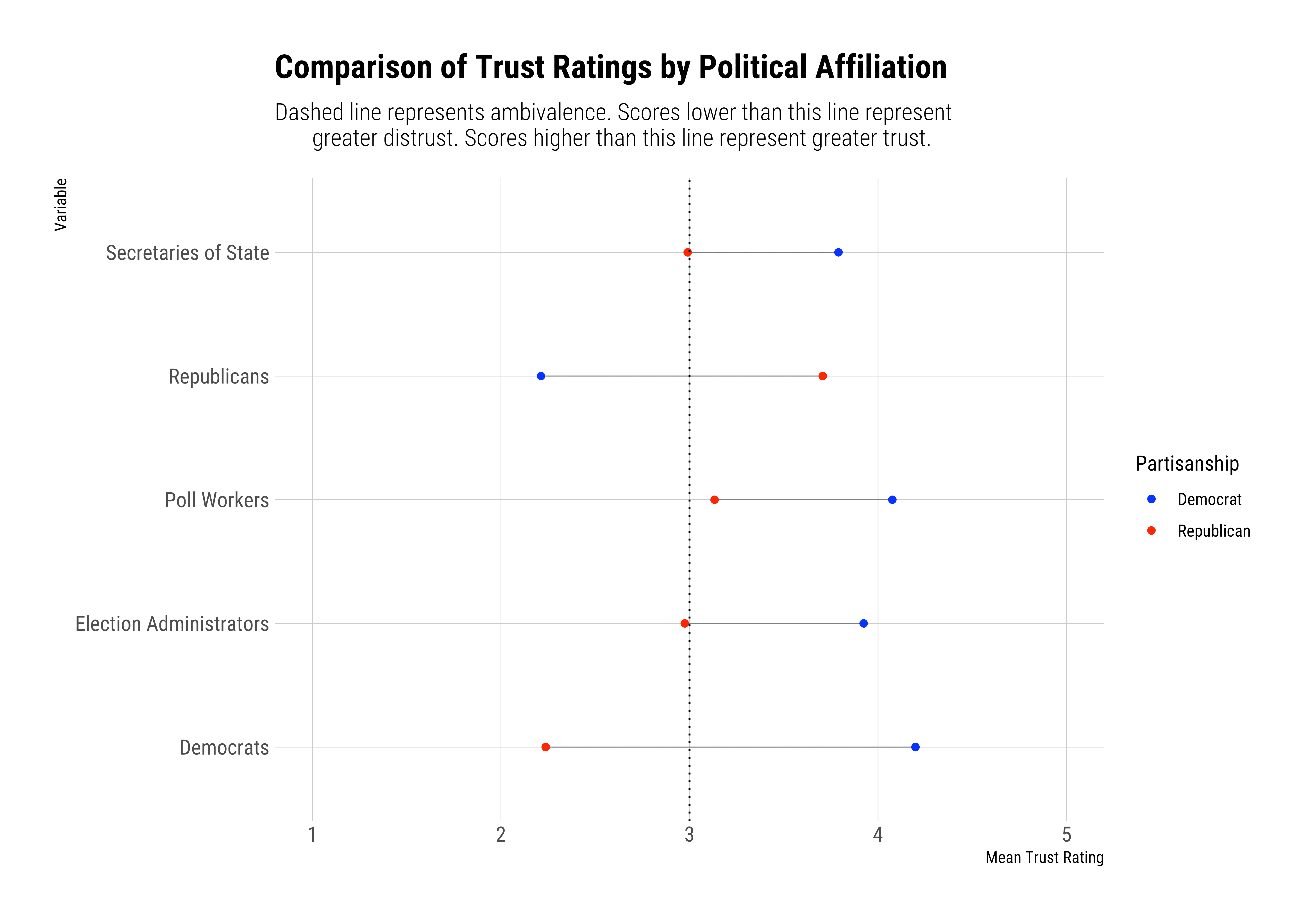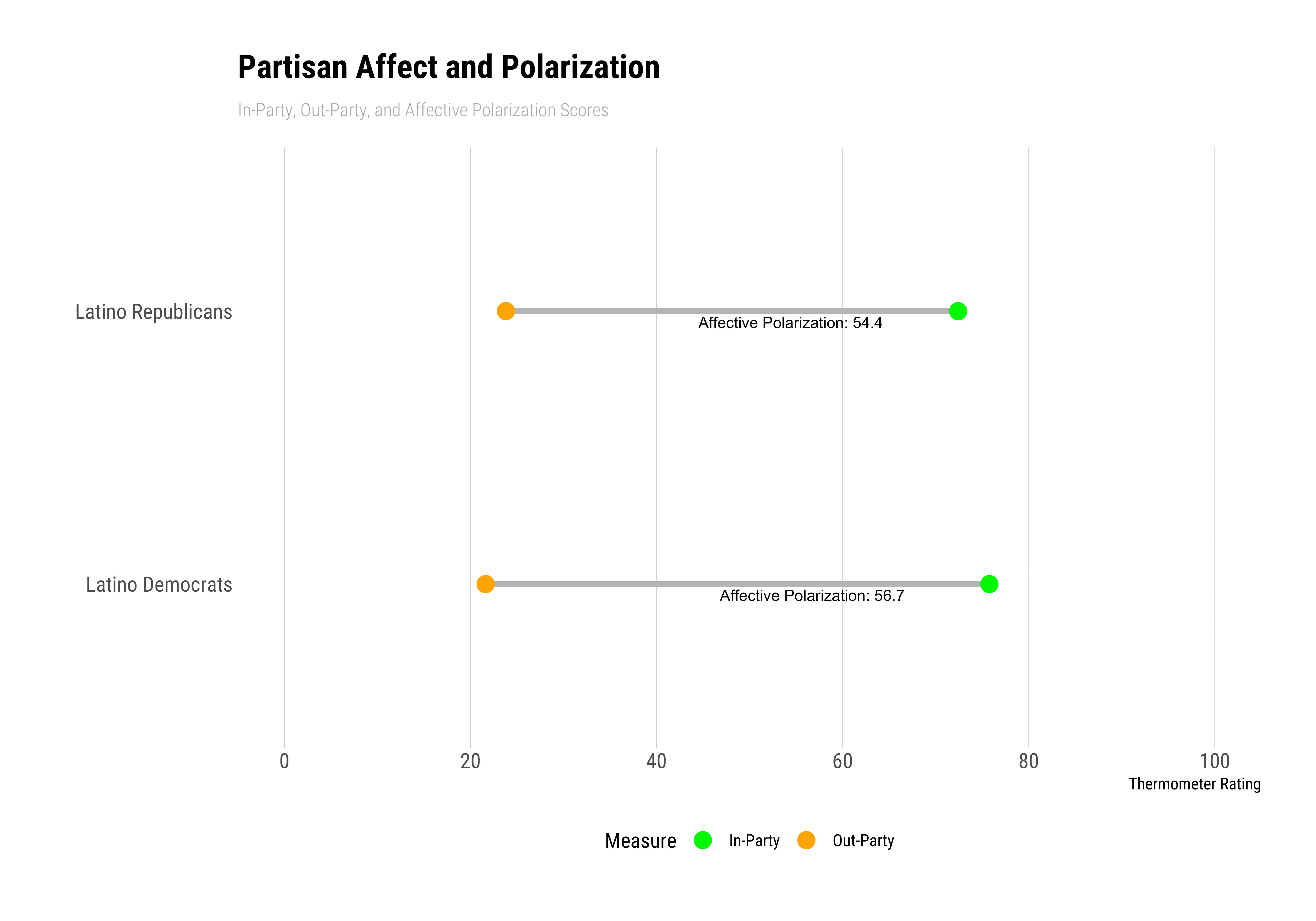Findings are from a DDIA poll of 3,000 Latinos conducted in September 2024, the full findings of which were released in February 2025.
TAKEAWAYS: Latinos & Trust
The Digital Democracy Institute of the Americas (DDIA) partnered with YouGov to conduct a nationally representative poll of 3,000 U.S. Latino adults, from September 6 to September 30, 2024, in English and Spanish.
The poll explored the five key topics below. This document outlines takeaways from the highlighted areas:
Familiarity and belief in a series of misinformation narratives and claims, including over time.
Changes in levels of trust in elections, and efficacy and vote intention since the primaries.
Agreement with new election-specific claims about Kamala Harris and Donald Trump.
Sentiments around immigration-related topics.
Updated views on generative-AI technologies and regulation.
Trust in Political Parties
Latinos’ trust in electoral and democracy-related officials remains strongly correlated with partisanship. A persistent lack of mutual trust underscores the deep partisan divide in electoral attitudes and likely contributes to heightened suspicions about the integrity of electoral processes.
Neither Latino Republicans nor Latino Democrats expressed high levels of confidence in the opposing party to do the right thing on election day.
The percentage of Latino voters in the sample who trusted Democrats to “do the right thing” on Election Day was 45% in September, up from 41% in March/April.
The percentage of Latino voters in the sample who trusted Republicans to “do the right thing” on Election Day stayed around 31% in September, as well as in March/April.
Measures of Affective Polarization
Note: Affective polarization refers to the tendency of people to view their own political party positively while holding negative views toward opposing parties. It’s a measure of the emotional divide between political groups, rather than differences in policy positions or ideologies.
Our analysis reveals significant affective polarization among Latino Democrats and Republicans:
Latino Democrats:
Rate their own party (in-party) at 76 on a 0-100 thermometer scale
Rate Republicans (out-party) at 22
Resulting in an affective polarization score of 57
Latino Republicans:
Rate their own party at 72 on a 0-100 thermometer scale
Rate Democrats at 24
Resulting in an affective polarization score of 54
Latino Independents:
Rate Democrats at 34 on a 0-100 thermometer scale
Rate Republicans at 34
Trust in Electoral Authorities
Latino Republicans expressed more ambivalence (neither trust nor distrust) toward election authorities like Secretaries of State, election administrators, and poll workers compared to their Democratic counterparts, who exhibited fairly high levels of trust. This is consistent with the DDIA poll conducted in March/April.
That said, in the September wave of polling, we also saw an increase in average levels of trust across various democratic institutions.
Trust in Secretaries of State in September was 44%, up from 41% in March/April.
Trust in Election Administrators was 47% in September, up from 43% in March/April.
Trust in Other Democracy-related Actors
Among Latino Democrats:
Most trusted: Scientists; journalists; fact-checkers; other Democrats
Least trusted: Fox News; social media; Supreme Court; Republicans
Among Republicans:
Most trusted: Scientists; Supreme Court; religious leaders; other Republicans
Least trusted: CNN; MSNBC; “media organizations”; journalists; activists;
GRAPHS


APPENDIX -
FULL LIST OF STAKEHOLDERS MEASURED FOR TRUST:
We measured trust in election-related groups such as:
Secretaries of State
Poll Workers
Election Administrators
Democrats
Republicans
The President
As well as other actors:
The Supreme Court
Congress
Religious Leaders
Activists
Media organizations (CNN, MSNBC, Fox News, Telemundo, Univision)
Journalists
Local Journalists
Fact-Checkers
Political Parties
Religious Leaders
Tech Companies
Social Media
Scientists
Neighbors
